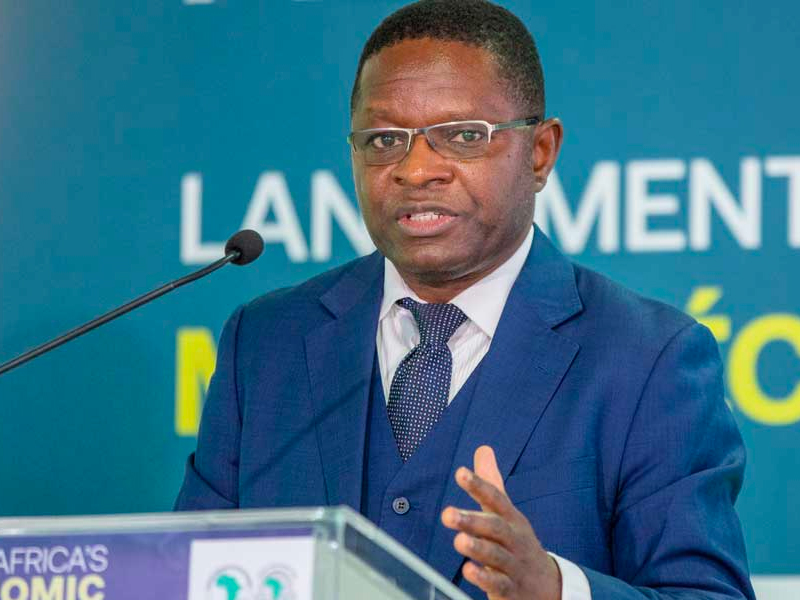
“The Bank remains resolute in supporting African countries to better tackle these challenges and put economic growth back on track.”
The African Development Bank has revised its short to medium-term macroeconomic forecast for Africa, for 2023 and 2024 downwards to 3.4% and 3.8%, from 4.0% and 4.3%.
The slightly lower figures reflect the persistent long-term effects of COVID-19, geopolitical tensions and conflicts, climate shocks, a global economic slowdown, and limited fiscal space for African governments to adequately respond to shocks and sustain post-pandemic economic recovery gains.
The updated data were published on Thursday, 29 November in the 2023 Africa’s Macroeconomic Performance and Outlook (MEO) update, a follow-up to the Bank Group’s 2023 Africa Economic Outlook released in May.
While inflationary pressures are receding globally, they are persistent in Africa and continue to weigh heavily on the continent’s short-to-medium-term economic performance, according to the update. Africa’s inflation is now projected to average 18.5% and 17.1% in 2023 and 2024, respectively.
The Bank Group’s Chief Economist and Vice President, Prof. Kevin Urama said: “The challenging global economic environment and multiple shocks continue to shape Africa’s macroeconomic performance. The entrenched inflationary pressures threaten to reverse all the macroeconomic gains made since the easing of pandemic risks while the continued depreciation of domestic currencies in many countries has exacerbated debt service costs.”
“In the face of regional and global shocks, the Bank remains resolute in supporting African countries to better navigate these challenges and put economic growth back on track,” he added.
In the short term, the MEO update urges countries to continue to implement restrictive monetary policies to contain inflation. This should be supported by fiscal policies that promote economic diversification and remove supply-side constraints.
Over the medium- to long-term, it calls on governments to scale up efficient investment in human capital and physical infrastructure to boost productivity, regain momentum in economic growth, and create opportunities for more inclusive and sustainable development.
The revised inflation rates represent an acceleration of 3.4 and 7.6 percentage points, respectively, from the earlier projection. Ongoing inflationary pressure has largely been fuelled by supply shocks in agriculture, stronger imported inflation due to weaker local currencies, relatively high commodity prices, and the persistence of fiscal dominance in several African countries.
The elevation of cost-of-living pressures has eroded Africans’ purchasing power, stoking the risk of further increases in the incidence of poverty.
Among the update’s findings: slow global economic growth is impacting demand for Africa’s exports, a trend that is projected to persist for much longer than previously anticipated.
It also stressed that the projected economic slowdown in advanced economies and lacklustre growth in China relative to historical trends have weighed down global growth.
“This has placed additional strain on African countries, especially those dependent on the Chinese market for commodity exports. Stronger policy support in China could bolster global economic recovery and trigger positive spillovers to African countries for which China remains a major trading partner. These factors can help moderate adverse risks to the economic outlook,” the report notes.
On the downside, the 2023 MEO update observes that climate shocks coupled with deepening geopolitical tensions in the Middle East and the prolongation of Russia’s invasion of Ukraine could lead to deeper disruptions in global trade and foreign investment flows. This can trigger another round of prolonged tightening of global financial conditions that could further exert depreciation pressure on domestic currencies, increase debt-service costs, and exacerbate the increase in debt service costs and compound the continent’s funding squeeze.
Copyright © ENTREPRENEURSHIP DEVELOPMENT INSTITUTE 2015. All rights reserved.
Powered by: C.B.N